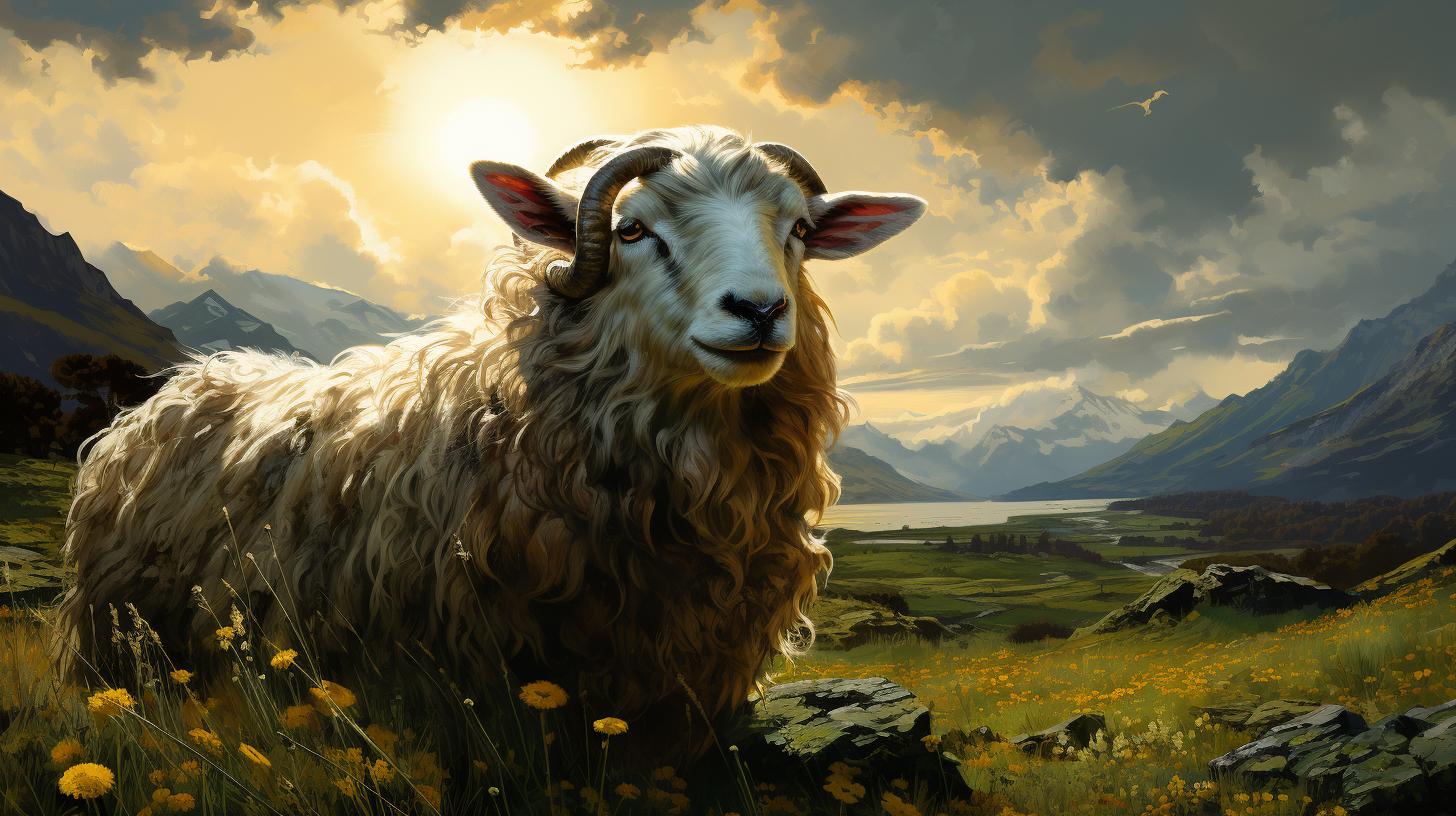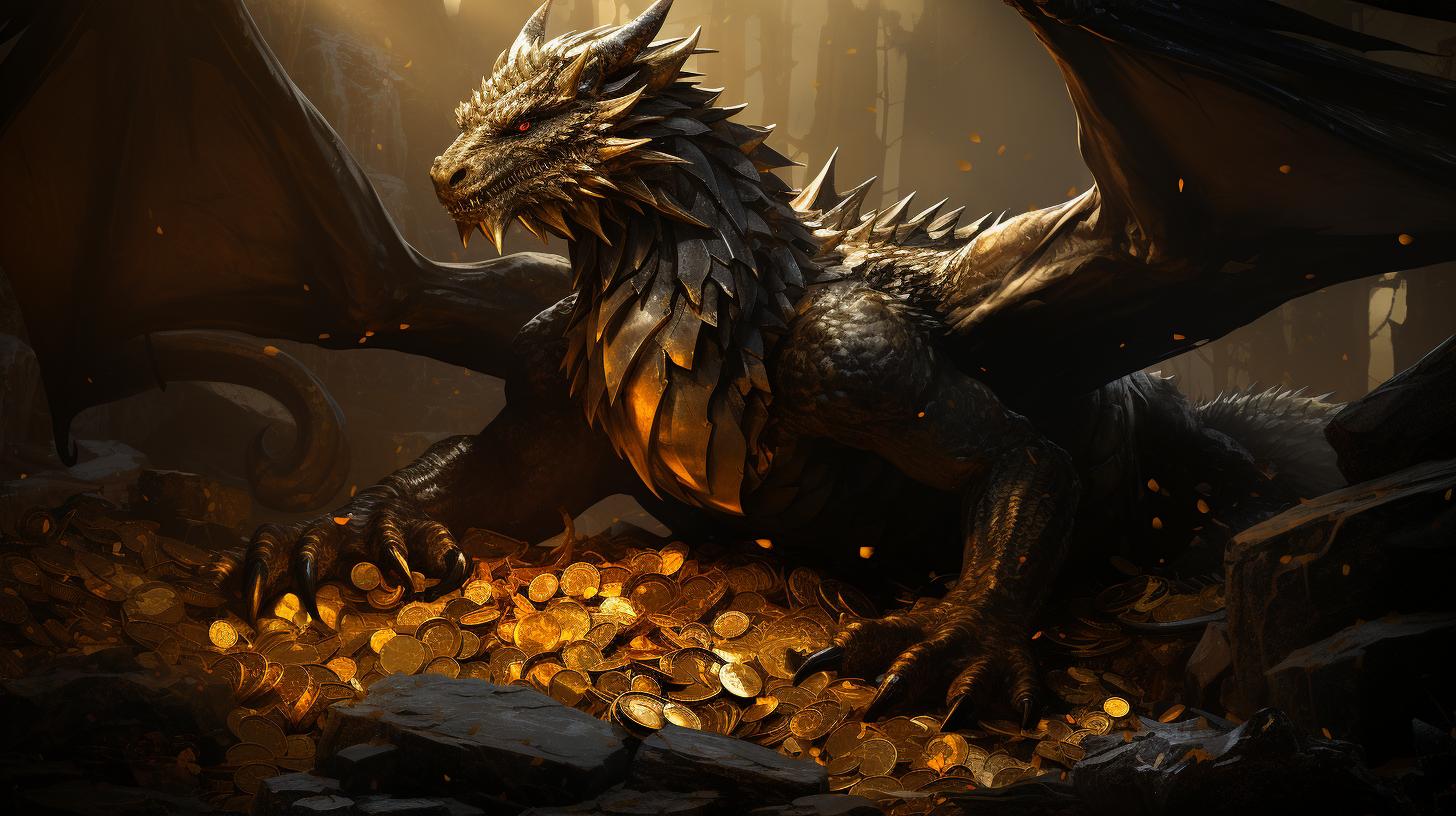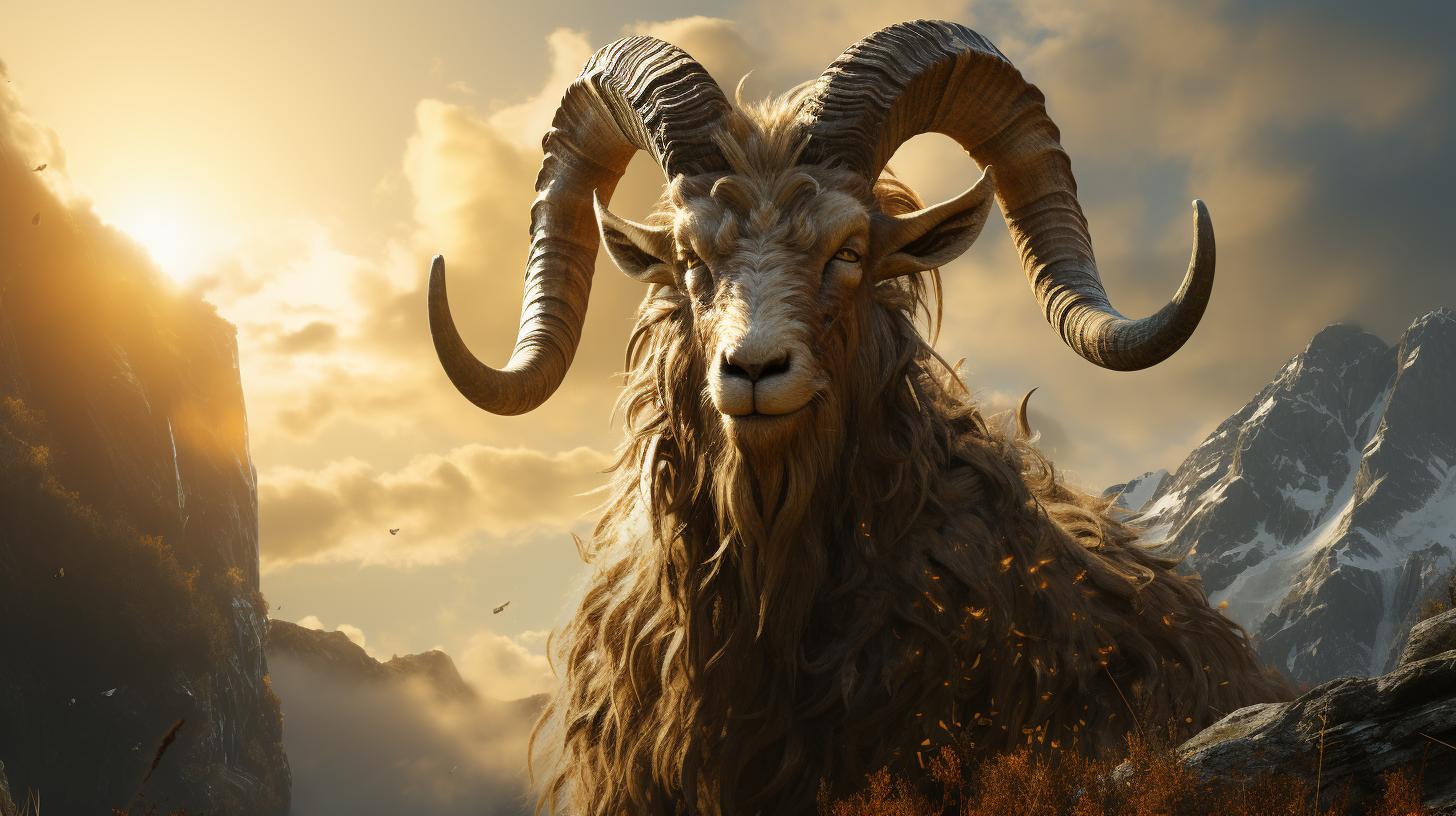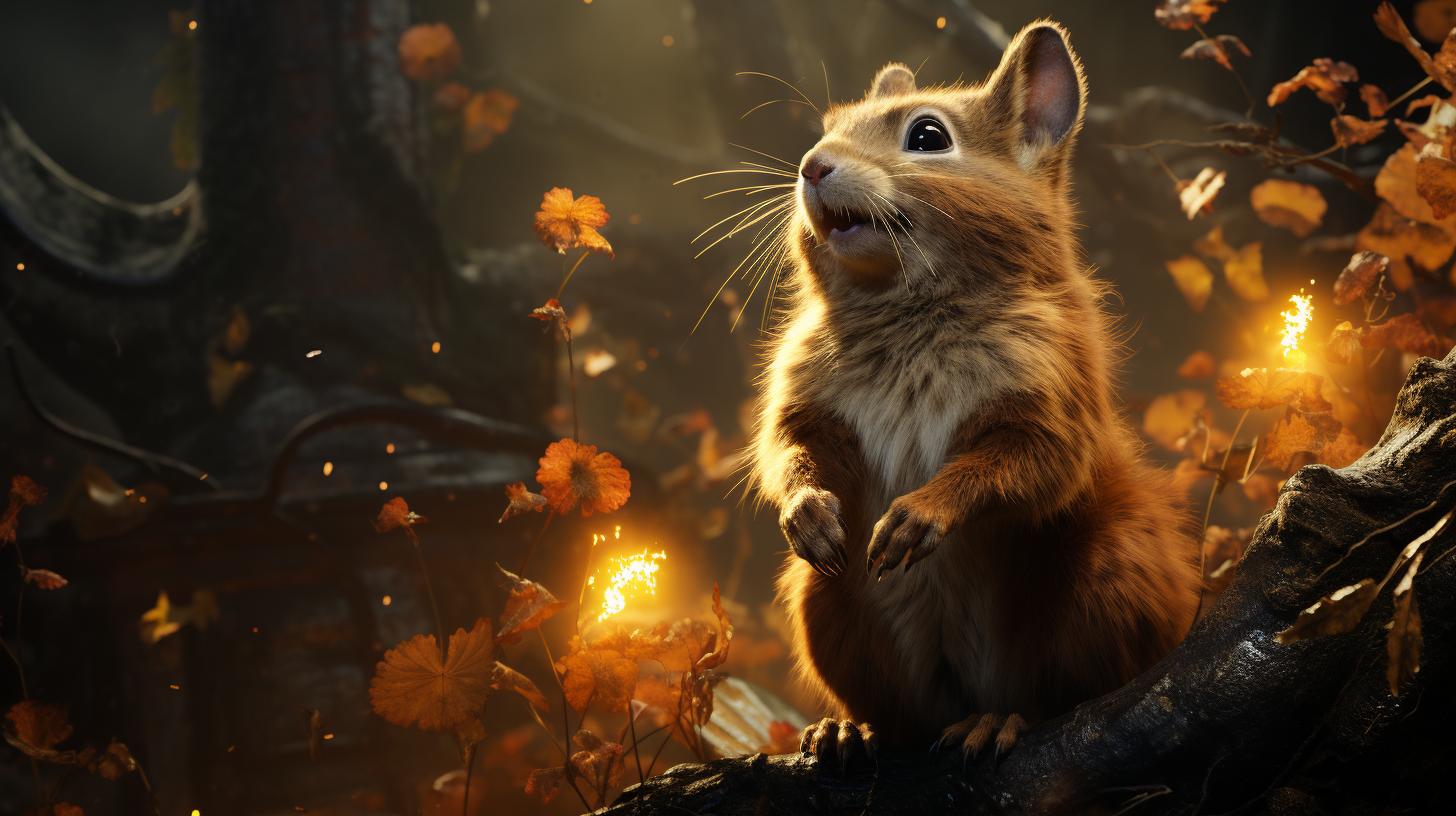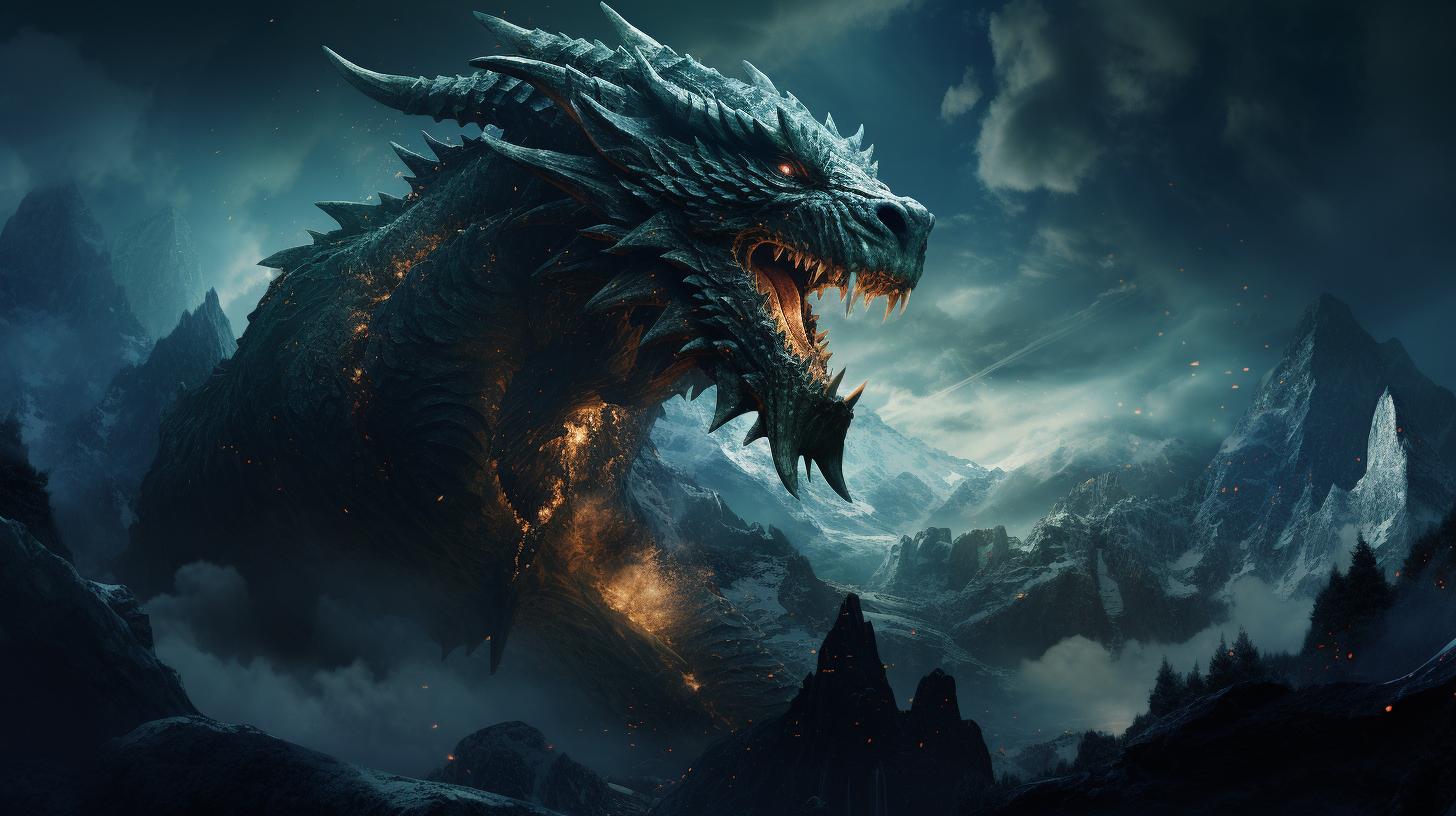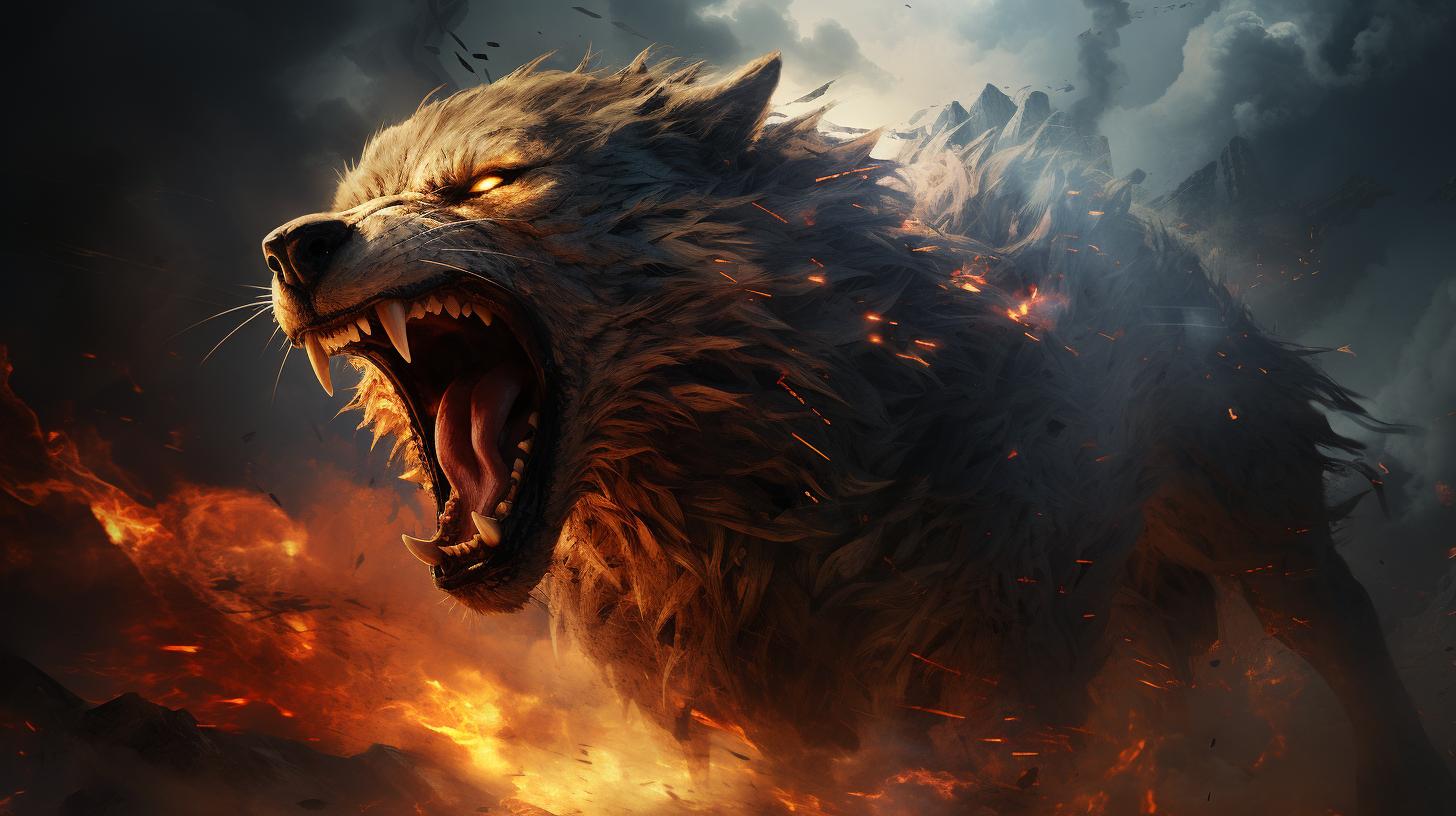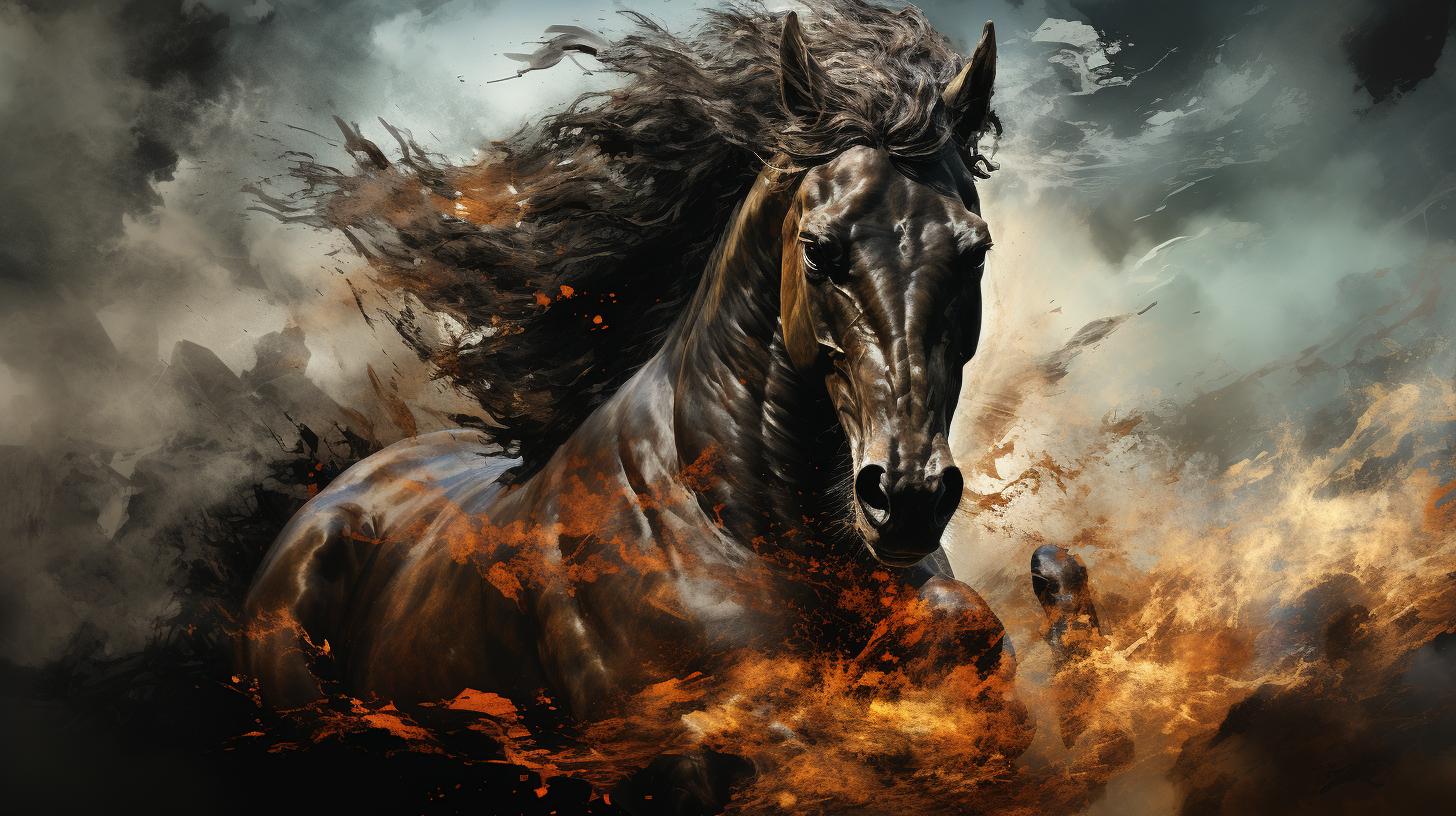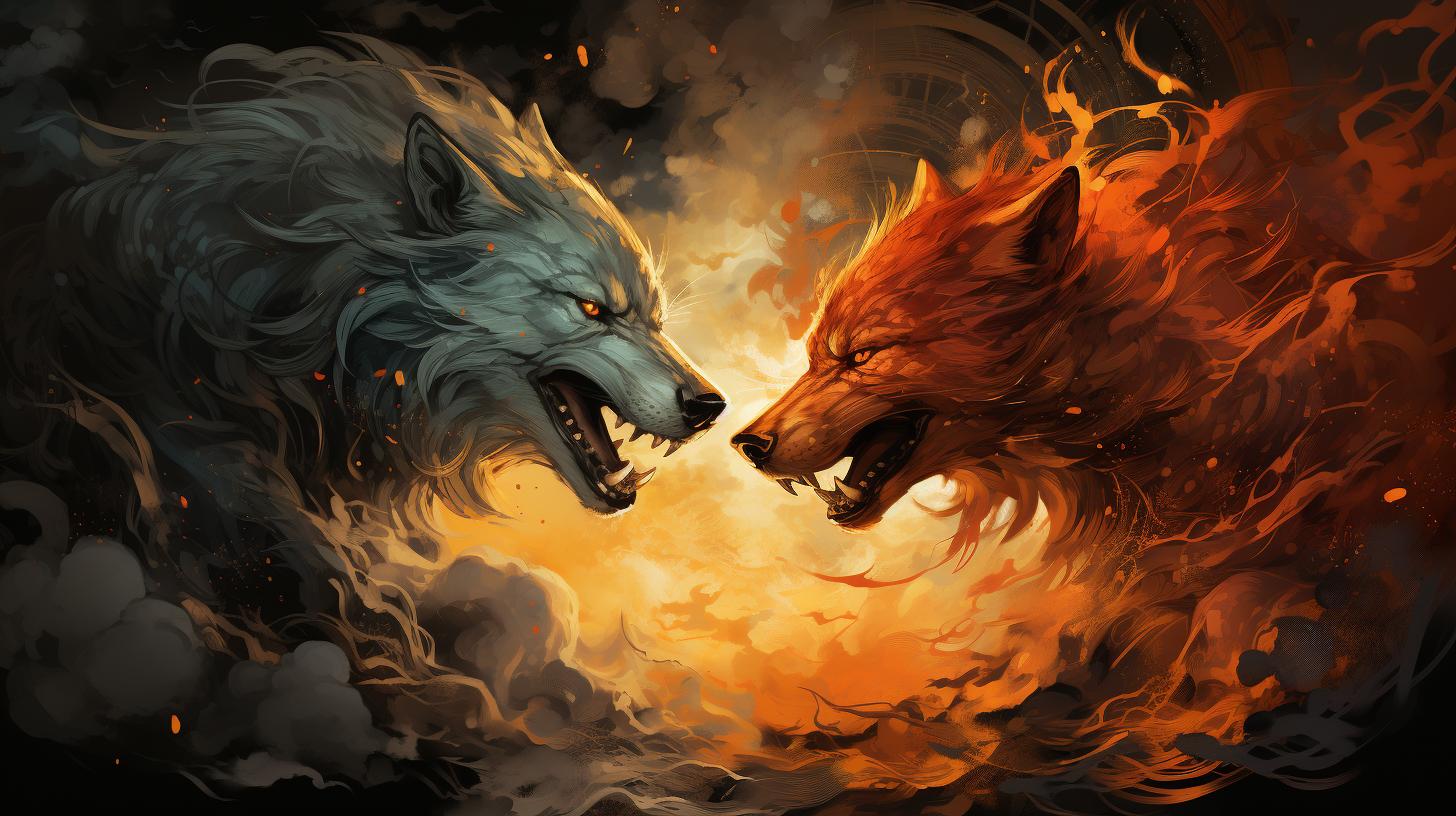Norse Goddess Gefjon: The Powerful and Generous Figura from Norse Mythology

Norse Goddess Gefjon is a prominent figure in Norse mythology, revered for her multifaceted attributes and legendary tales. Associated with agriculture, fertility, abundance, and virtue, Gefjon’s name, meaning ‘Giver’ or ‘Generous,’ reflects her connection to prosperity and generosity towards the Norse people.
According to Snorri Sturluson, Gefjon possesses the power to grant and take away lands. One of her well-known stories involves the creation of the island of Zealand from a piece of land she plowed with four giant oxen.
Gefjon’s influence goes beyond farming and fertility, as she also engages in a verbal challenge with Loki. With various theories and connections in Norse poetry, Gefjon remains a significant and intriguing figure in Norse mythology.
Origins of Norse Mythology
The rich tapestry of Norse mythology holds a fascinating array of tales and legends that have captivated audiences for centuries. This section will delve into the origins and foundational aspects of Norse mythology, providing an intriguing introduction to this ancient belief system.
Introduction to Norse Mythology
Norse mythology originates from the ancient Germanic tribes of Scandinavia, encompassing the mythological beliefs and stories of the Norse people. Spanning from the pre-Christian era, these myths were orally transmitted through generations and eventually recorded in written form.
At the core of Norse mythology is the belief in Yggdrasil, the great world tree that connects the Norse realms. This cosmology portrays a complex and interconnected web of gods, goddesses, giants, and mythical creatures.
Overview of Norse Gods and Goddesses
The Norse pantheon is populated by a diverse range of powerful gods and goddesses, each with their own unique attributes and roles. This overview will provide a glimpse into some of the most prominent deities within Norse mythology.
- Odin: The Allfather and ruler of Asgard, Odin represents wisdom, knowledge, and warfare.
- Thor: The thunder god and protector of mankind, Thor wields his mighty hammer Mjölnir.
- Freya: The goddess of love, beauty, and fertility, Freya is associated with desire, magic, and the afterlife.
- Loki: A trickster god known for his cunning and shape-shifting abilities, Loki often stirs up chaos within the pantheon.
- Tyr: The god of law and justice, Tyr epitomizes bravery and self-sacrifice.
These are just a few examples of the myriad gods and goddesses that populate the rich tapestry of Norse mythology, each contributing their unique characteristics and playing significant roles in the stories and legends that have been passed down through the ages.
Introduction to Norse Goddess Gefjon
Gefjon, a fascinating figure in Norse mythology, is an enigmatic goddess associated with various aspects and legends. In this section, we will delve into the mythological background of Gefjon and explore her significance and symbolism.
Mythological Background of Gefjon
Gefjon’s origins can be traced back to the rich tapestry of Norse mythology. She is believed to have been one of the divine goddesses in the pantheon, embodying a unique blend of attributes and qualities.
While her exact lineage and family connections remain debated, Gefjon’s presence in the mythological narrative is undeniable.
Her mythological background is interwoven with stories of creation, fertility, and power over the land.
As we explore further, we will encounter tales of her pivotal role in the establishment of lands and the shaping of landscapes.
Significance and Symbolism of Gefjon
Gefjon holds immense significance in Norse mythology, symbolizing various concepts and ideals. As the goddess of agriculture, she embodies the intricate relationship between humans, the earth, and the bountiful harvest. Her association with fertility underscores her role as a bringer of abundance and prosperity to her devotees.
Furthermore, Gefjon’s connections to clarity and seer abilities highlight her role as a figure of wisdom and foresight. Her virginity and virtuous nature add another layer of symbolism, representing purity and virtue in Norse spirituality.
It’s worth noting that Gefjon’s significance expands beyond the realms of agriculture and fertility. Her involvement in a verbal challenge with the mischievous deity Loki showcases her wit and cleverness in navigating complex situations.
By exploring Gefjon’s significance and symbolism, we gain a deeper understanding of her role in the Norse belief system and the broader cultural context in which she is revered.
Attributes and Roles of Norse Goddess Gefjon
Gefjon, the Norse goddess, embodies various attributes and plays significant roles within Norse mythology.
This section explores her association with agriculture and fertility, connection to abundance and prosperity, clarity and seer abilities, as well as the concepts of virginity and virtue ascribed to Gefjon.
Association with Agriculture and Fertility
Gefjon is deeply intertwined with the realm of agriculture and fertility.
She is revered as the patroness of labranza, the art and craft of cultivating the land. Norse mythology portrays Gefjon as a provider of bountiful harvests and ensures the well-being of crops.
Her fertility aspect is celebrated for granting abundance to crops and ensuring the growth of life.
Connection to Abundance and Prosperity
Gefjon’s presence brings forth abundance and prosperity to those who revere her. As the goddess associated with generosity and wealth, she bestows her blessings upon the Norse people, ensuring their prosperity in all aspects of life.
Gefjon’s influence extends not only to agricultural abundance but also to overall prosperity and well-being.
Clarity and Seer Abilities of Gefjon
Besides her role in agriculture-fertility and abundance-prosperity, Gefjon possesses remarkable clarity and seer abilities. She is known for her sharp vision, which grants her the ability to foresee events and guide individuals towards wise and informed decisions.
Gefjon’s clairvoyance is highly regarded, making her a revered figure among Norse mythology.
Virginity and Virtue Ascribed to Gefjon
An interesting aspect associated with Gefjon is her connection to the concepts of virginity and virtue. It is believed that those who die as virgins become Gefjon’s attendants or maiden handmaidens in the afterlife.
This representation highlights her purity, virtue, and the importance of maintaining one’s integrity. Although there are conflicting accounts of Gefjon’s relationships and parentage, her virginity remains an essential characteristic attributed to her.
Legends and Stories about Norse Goddess Gefjon
Legends surrounding the Norse Goddess Gefjon are filled with captivating tales that showcase her power and influence in Norse mythology. These stories provide insights into her role as a creator and her interactions with both mortal and divine beings.
Let us delve into some of the most notable legends associated with Gefjon:
Creation of Zealand: The Story of Gefjon and King Gylfi
One renowned legend revolves around Gefjon’s creation of the island of Zealand, which is now home to the capital city of Denmark, Copenhagen. Disguised as a homeless woman, Gefjon approached King Gylfi, who offered her a challenge: she could have as much land as she could plow in one day.
Ingeniously, Gefjon transformed her four sons, fathered by an unnamed giant, into mighty oxen. With their immense strength, they plowed vast swaths of land, tearing it away from Sweden and forming the lake Mälaren in the process.
This land became Zealand, now a significant part of Danish history and culture.
Gefjon’s Relationships and Parentage
The stories about Gefjon’s relationships and parentage vary, offering different perspectives on her personal life. Some versions depict her as the wife of the Danish king Skjoldr, while others tell of her four sons fathered by a giant.
These diverse accounts challenge the notion of Gefjon’s virginity and raise intriguing questions about her family dynamics and connections within Norse mythology.
Gefjon’s Encounter with Loki: The Flyting Challenge
Gefjon’s intellectual prowess is highlighted in her encounter with the mischievous Loki. The two engage in a verbal contest known as a flyting, in which insults and challenges are exchanged.
Loki, known for his cutting remarks, accuses Gefjon of promiscuity and sleeping with multiple men. This encounter not only showcases Gefjon’s wit in defending herself but also provides valuable insights into her standing among the gods and her ability to hold her own against adversity.
These legends and stories paint a vivid picture of Gefjon’s power, creativity, and influence within Norse mythology. Through her remarkable feats and interactions with other mythical beings, Gefjon continues to captivate our imagination and leave a lasting impact on Norse culture and beliefs.
Comparisons and Connections with Other Goddesses
The Norse goddess Gefjon shares intriguing connections and parallels with other prominent divinities in Norse mythology, including Freyja and Frigg. Additionally, there are discussions and debates regarding Gefjon’s potential links to Grendel’s mother and the presence of references to her in Old English poems, such as Beowulf.
Gefjon’s Parallels with Freyja and Frigg
In Norse mythology, Gefjon, Freyja, and Frigg are significant goddesses, each with unique attributes and roles. While Gefjon is associated with fertility and agriculture, Freyja is widely revered for love, beauty, and magic.
Frigg, on the other hand, is the queen of the Aesir gods and known for wisdom and motherhood.
Despite their distinct domains, there are certain parallels between Gefjon and Freyja.
Both are associated with fertility and abundance, embodying the power of creation and prosperity. However, Gefjon’s role as a virgin goddess sets her apart from the passionate nature often attributed to Freyja.
As for Gefjon’s connections with Frigg, they share the aspect of motherhood, albeit in different contexts. Gefjon is said to have mothered four sons with a giant, which raises questions about her alleged virginity.
In contrast, Frigg is the mother of Baldr, one of the most beloved gods in Norse mythology.
Possible References in Beowulf and Other Old English Poems
Exploring Norse mythology requires considering its connections beyond the borders of Scandinavia. Some scholars suggest the presence of references to Gefjon in Old English poems, such as Beowulf, though these allusions are subject to debate and interpretation.
Within Beowulf, the poem’s complex imagery and symbolism have led to theories of Gefjon’s presence, particularly in relation to Grendel’s mother. While the connections remain speculative, they highlight the enduring influence and interplay between Norse mythology and broader Germanic traditions.
Further investigations into Old English poems and sagas may reveal additional insights into Gefjon’s significance and connections in the larger context of Germanic mythology and folklore.
Discussions on Gefjon’s Connection to Grendel’s Mother
Among the many intriguing aspects of Norse mythology is the potential association between Gefjon and Grendel’s mother.
While the specific nature of their connection remains elusive, some theories posit a shared origin or archetypal elements.
Both Gefjon and Grendel’s mother represent powerful female figures, with Gefjon embodying fertility and abundance while Grendel’s mother symbolizes chaos and darkness.
Some interpretations even suggest that Gefjon’s involvement in the creation of Zealand echoes Grendel’s mother’s connection to the watery depths.
Despite the speculation, the exact nature of Gefjon’s relationship with Grendel’s mother remains open to interpretation and adds to the ongoing fascination with the rich complexities of Norse mythology.
Gefjon’s Influence and Legacy in Norse Mythology
Within Norse mythology, the goddess Gefjon holds immense influence and leaves a lasting legacy in the hearts and minds of her worshippers. Let us explore the widespread worship and devotion to Gefjon, as well as the impact her cult had on Norse culture and society.
Widespread Worship and Devotion to Gefjon
Gefjon was revered by many in Norse society, especially those who relied on agricultural practices and sought fertility for their lands. As the goddess associated with agriculture and abundance, she became a focal point of worship for farmers, who depended on her blessings for bountiful harvests.
Temples dedicated to Gefjon were built in various regions, serving as centers of worship and offering platforms for devotees to express their gratitude and seek her favor. Festivals and rituals honoring Gefjon were held, where individuals would participate in ceremonial dances and prayers to honor her and ensure prosperous crops.
Gefjon’s worship extended beyond farmers, as her influence permeated all aspects of Norse society. Her association with clarity and seer abilities attracted those seeking guidance and foresight, making her a revered figure among the spiritual and mystic communities.
Impact of Gefjon’s Cult on Norse Culture and Society
The cult of Gefjon had a profound impact on Norse culture and society, shaping beliefs, values, and traditions. The emphasis on agriculture and fertility that Gefjon symbolized influenced farming practices, with farmers following rituals and practices believed to bring about favorable conditions for their crops.
Gefjon’s association with virtuous qualities such as virginity and virtue also had an impact on societal norms and values. Young women looked up to Gefjon as a role model, embracing her virtues and seeing her as a representation of female empowerment.
Furthermore, Gefjon’s connection to clarity and seer abilities brought about a reverence for wisdom and spiritual insight in Norse society. The pursuit of knowledge and the understanding of one’s destiny became significant focal points of personal development and growth.
The legacy of Gefjon’s cult continues to resonate in contemporary Norse culture. Her symbolism and stories inspire artists, writers, and musicians who strive to capture her essence and incorporate her into their works.
Additionally, the values and virtues associated with Gefjon continue to be upheld and celebrated by those who embrace Norse traditions and spirituality.
In conclusion, Gefjon’s influence and legacy in Norse mythology are vast and profound.
Her cult’s widespread worship, devotion, and impact on Norse culture and society make her an enduring figure, revered for her association with agriculture, fertility, clarity, and virtue.
Popular Representations of Norse Goddess Gefjon
Popular culture has embraced the enigmatic figure of Norse Goddess Gefjon, giving rise to various artistic depictions in Norse art and sculpture, as well as contemporary interpretations in literature and media.
Artistic Depictions in Norse Art and Sculpture
Norse art and sculpture have often sought to capture the essence of Gefjon’s power and beauty. In Norse mythology, she is portrayed as a mighty goddess, often depicted with her iconic plow and oxen.
Artists have carved intricate statues and reliefs showcasing Gefjon’s role as the bestower of land and the fertility she brings to the earth. These artworks serve as both tributes to her divine existence and symbols of prosperity for the ancient Norse people.
Contemporary Interpretations in Literature and Media
The allure of Norse mythology and the captivating character of Gefjon have influenced contemporary literature and media. Authors and storytellers have incorporated Gefjon into their works, weaving her into fantastical narratives and exploring her multifaceted nature.
In novels, Gefjon often represents feminine strength, independence, and the pursuit of one’s desires. Additionally, in movies and television series, she emerges as a fierce and captivating deity, captivating audiences with her enigmatic persona and extraordinary powers.
Furthermore, Gefjon’s cultural significance has extended into various forms of media, such as video games and graphic novels. These modern interpretations allow individuals to immerse themselves in the realm of Norse mythology and experience the mystique that surrounds the Norse Goddess Gefjon.
Exploring Gefjon’s Relevance and Significance Today
Gefjon’s Influence on Modern Perspectives of Femininity
Gefjon, as a Norse goddess associated with fertility, abundance, and virtue, holds a unique position in modern perspectives of femininity. Her portrayal emphasizes the strength and power of women, particularly in agricultural and nurturing roles.
Gefjon serves as a symbol of resilience, independence, and the ability to create and shape our own destiny. By exploring Gefjon’s story, we gain insights into the importance of women’s agency and their integral role in society, empowering individuals to embrace and celebrate feminine attributes beyond traditional gender roles.
Cultural and Historical Importance of Norse Mythology
The enduring fascination with Norse mythology has bestowed upon Gefjon an ongoing cultural and historical significance. Norse mythology, with its rich tales and powerful deities, continues to captivate and inspire artists, writers, and scholars alike.
Gefjon, as a representative of the Norse pantheon, offers a deeper understanding of the cultural and historical context in which she emerged. Through exploring Gefjon’s mythology, we uncover valuable insights into ancient Scandinavian beliefs, societal structures, and the interconnectedness between nature, fertility, and human existence.
The study of Norse mythology expands our comprehension of the past and provides a source of inspiration for contemporary cultures, reinforcing the importance of preserving and appreciating our mythological heritage.
Mythological Significance and Symbolism
The Norse goddess Gefjon holds immense mythological significance, representing various aspects and roles within Norse mythology.
She embodies the fertile earth and the abundance of crops, symbolizing the cycle of life and growth. Gefjon’s association with agriculture and fertility makes her an essential figure in Norse narratives.
Role in Creation and Land Granting
Gefjon is renowned for her role in the creation of Zealand, as she cunningly plowed the land with her four giant sons turned into oxen. This act not only formed the iconic Lake Mälaren but also laid the foundation for the exquisite Danish island of Zealand, including its capital city, Copenhagen.
Additionally, Gefjon’s ability to grant and take away lands showcases her power and authority in Norse mythology.
Virginity and Virtue
While Gefjon is often associated with virginity and virtue, conflicting narratives challenge this aspect of her character. Some stories depict her as the wife of King Skjoldr, while others attribute her four sons to an unnamed giant, raising questions about her claimed virginity.
Her connection to virginity also extends to her role as the patroness of those who died as virgins.
The Flyting Challenge with Loki
Gefjon’s involvement in a flyting, a verbal battle, with the mischievous god Loki demonstrates her wit and resilience. In this exchange, Loki insults Gefjon with accusations of promiscuity and engaging in relationships with multiple men.
This episode sheds light on the complexities of Gefjon’s reputation within Norse mythology.

